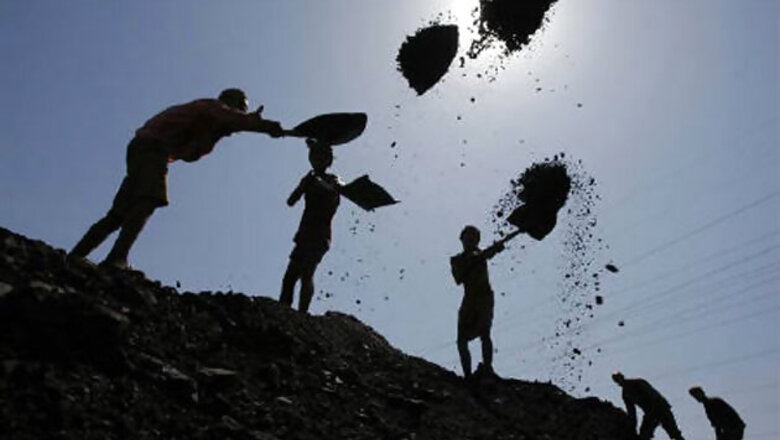
views
New Delhi: The Supreme Court may allow the resumption of mining ore in the 6 million tonne Narrain mine in Karnataka. The Central Empowerment Committee had made the recommendations last week. The apex court had banned mining in the area in 2011.
India's snail-paced approach to resolve the 18-month iron ore mining ban in Karnataka, where shipments are also barred, has allowed other producers to cash in on global prices that hit 15-month highs in January.
Only seven out of 170 mines in Karnataka have resumed operations, and the state hopes to start another 14 mines in the next fiscal year, said HR Srinivasa, director at the state government's department of mines and geology.
That could mean another 14 million tonnes, bringing annual output to 15 million tonnes. That is about 10 percent of India's expected production in the fiscal year that starts in April, based on estimates by the Federation of Indian Minerals Industries (FIMI).
"It is a very conservative figure, but achievable," Srinivasa said, adding it will take time for the Supreme Court to give approvals for the reclamation and rehabilitation plans it has called for.
Some cite these challenging demands - which run from building fort-like walls around mines to using rain water for sanitation - for the delays in the court hearings. Others say with hundreds of cases either awaiting hearings or verdicts, the Supreme Court simply does not have enough time.
The court may eventually allow a total of 120 mines in the state to produce and
has already said it wants to shut the remaining 50 mines due to illegalities, according to FIMI, which is advising the top court.
"The silver lining is that the bad and the ugly guys will be weeded out and responsible corporates will live to fight another day," said Basant Poddar, vice-president of FIMI.
The industry's struggles, which have pushed India out of its position as the world's No. 3 exporter of iron ore to possibly a net importer starting this year, stem from an investigation set up in 2010 by New Delhi, which has called for a total ban on exports and tighter controls to stamp out illegal mining. While the central government has stopped short of halting exports, states have done what they can to clamp down on transgressors, such as banning movements of iron ore and mining.
The Supreme Court also suspended mining in Goa since September 2012. Between them, Karnataka and Goa used to produce over half of India's 200 million tonnes of iron ore a year.
The Shah Commission, appointed by the central government, will make another visit to iron ore mines this month in Odisha, another major producing state, as part of an earlier investigation into illegal mining. The Commission is yet to submit a report to the federal government.
The government of Odisha, which produces between 65 million and 75 million tonnes a year, had warned miners there against excessive mining and called for half the state's iron ore to go to local steel mills.
With additional information from Reuters



















Comments
0 comment